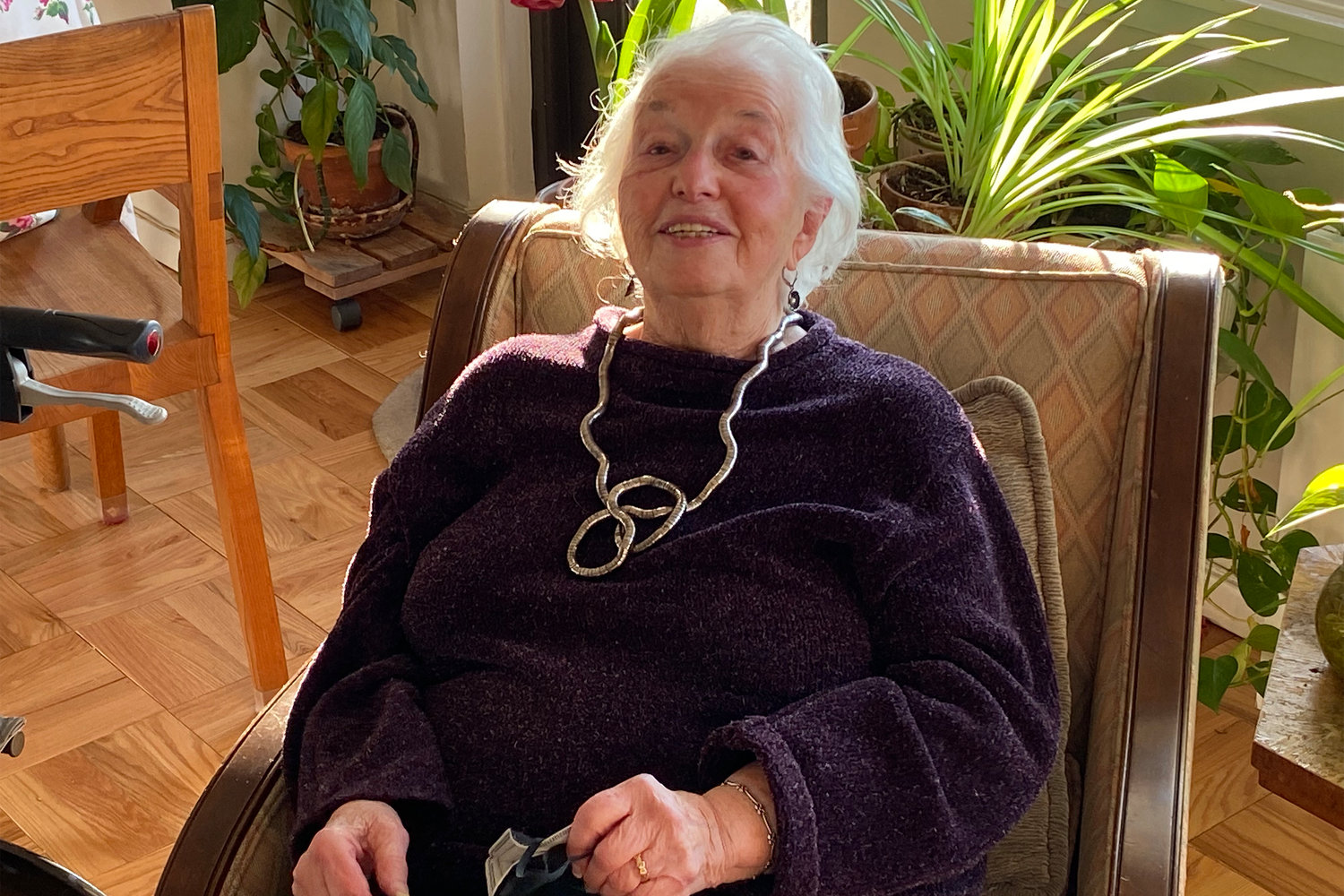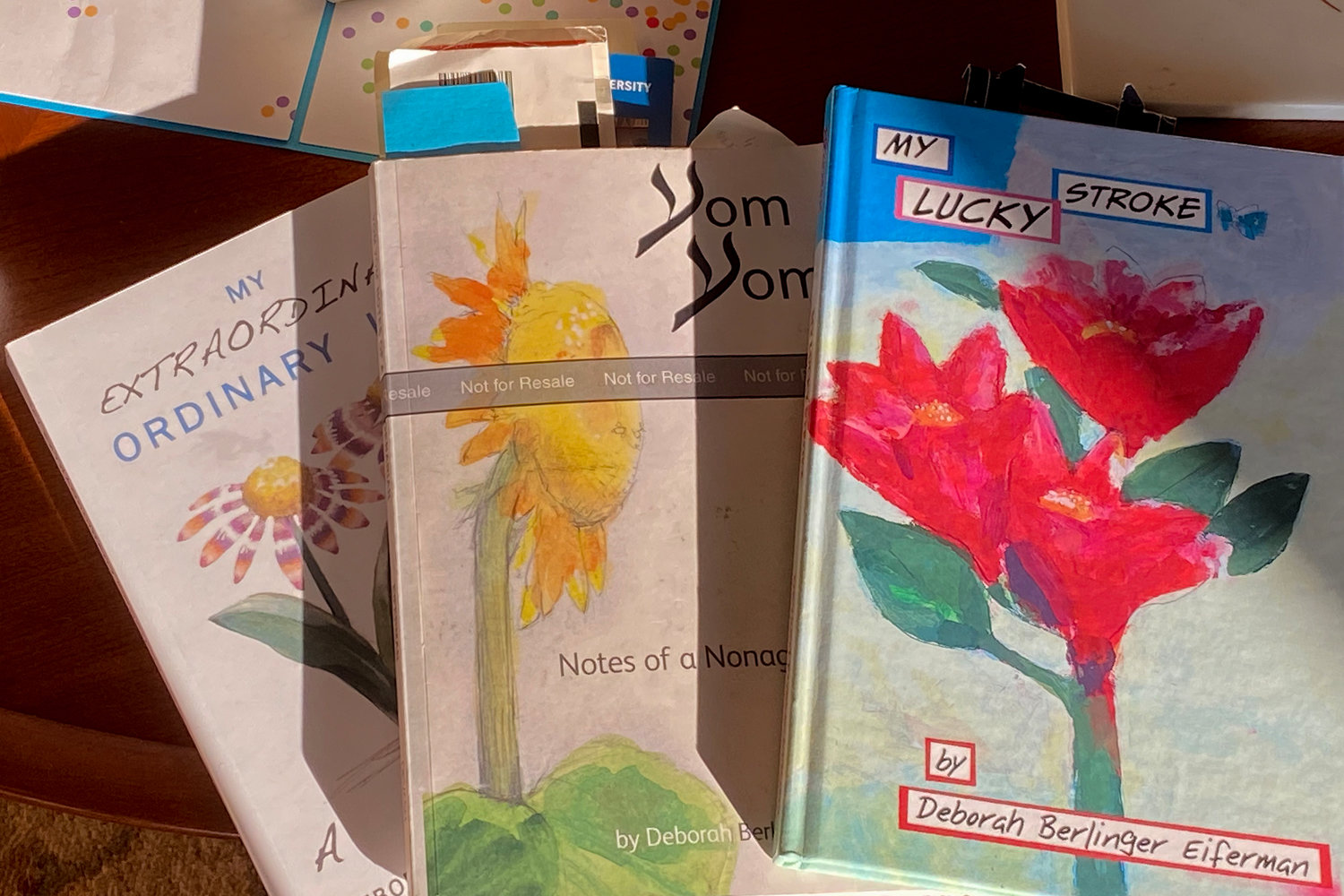Turning 100 as the year turns to 2023
Deborah Eiferman credits mother, positive attitude for her longevity, and for becoming an author in her 90s
The headline in a local Brooklyn newspaper on Jan. 2, 1923 read, “Women will rule this year.” It was just four years after women got the vote after the 19th amendment became law.
Deborah Berlinger Eiferman remembers that headline as well as others from that date in the Journal American and New York Times because it was referring to her birth as the first baby born in New York City, and possibly the United States. It was accompanied by a photo of her, her mother — Frieda Moser Berlinger — and the obstetrician who delivered her. Her father was Jack Berlinger.
“It was my first feminist act,” Eiferman said about the blessed event at a Boro Park hospital in Brooklyn. And it hasn’t nearly been her last as she turned 100 last month. The Riverdale resident, who lived in Brooklyn when she was young, was ecstatic at reaching triple figures. Or as she called it “the ciphers.”
“I was propelled up to the clouds without a propellant,” she said when describing how it felt to turn 100. “And very frankly several weeks later, I still haven’t come down.
“I have the excitement of just being here. Those ciphers boggle my mind. It challenges my logic. I just can’t believe it.”
Deborah’s achievement is not as rare as it once was. She is part of a trend of people living much longer. According to the U.S. Census, the number of centenarians grew to more than 90,000 in 2020 compared to more than 53,000 in 2010. The number of New York City residents older than 65 was at 237,478 in 2017, according to the Center for an Urban Future.
She credits her mother’s guidance when she was only a teenager for giving her the roadmap to a long life. At 36, Frieda imparted some pearls of wisdom on her death bed to Deborah that gave her and her sisters guidelines to live by.
“She was an amazing woman,” Eiferman said. “She was a woman of valor. She was that in belief and in deed. The kind of woman she was made me feel and my two sisters feel that we were obliged to follow what she wanted.”
Her mother communicated those guidelines as she was dying in the same hospital where Eiferman was born. “My last contact with her was in the hospital and she asked me to come into the bed with her,” Eiferman said.
“Apparently, she had some sense she was going to die. She said, ‘Devorah,’ there are two things that nobody in the world, no matter how powerful, how rich, how important, can never take away from you. It’s your education and your good name.”
That was a guideline and inspiration for a good part of her life, she said.
“Based on that, she wanted me to promise that my sisters and I would graduate from college,” she said. Eiferman followed through on that promise as she earned a bachelors degree from Brooklyn College and a doctorate in counseling and psychology from Fordham University.
She became a professor of psychosocial development at Brooklyn College, the assistant director of personnel at the Jewish Childcare Association and a Hebrew teacher.
Eiferman even talked her younger sister to go to college and graduate summa cum laude from University of Massachusetts at Amherst at the age of 70.
Through her century of life, she has lived through two world wars, the Great Depression, assassination of U.S. leaders, a terrorist attack on New York City, and once-in-a-lifetime pandemic. But she wouldn’t dwell on those historic, yet sad, events. That’s not how she has made it to 2023.
“The great thing about getting old is that you develop a different perspective,” she said. “There are a lot of people who are depressed. I realized that everyone is in control of one thing — your perspective.
Later in her life, she was a caregiver for her husband, Irving Eiferman, an attorney who died in 2012. They were married for 64 years. For the past 10 years, she has jumped into another phase of her life. That of an author.
“I figured I had to do something compulsively,” she said. “So I went to the computer and with these two fingers (her index fingers) I started writing about my life memories.”
That book was her memoir, “My Extraordinary Ordinary Life.” She followed that up with two more books over the past decade called “Yom Yom — Notes of a Nonagenarian,” and “My Lucky Stroke.” The second book, which includes poems, paintings and pictures, focuses on life in her 90s and the third book on how her life changed after suffering a stroke. She called the most recent book a lucky stroke because her family was with her when she had it and helped get her immediate care.
She credits her positive attitude with her becoming a centenarian.
“It’s about what you have, not what you don’t have,” she said. “As poor as you are, if you have a roof over your head and food to eat, focus on what is right with your life. Forget about the rest.
“It’s gratitude for your attitude. You are in absolute control.”










